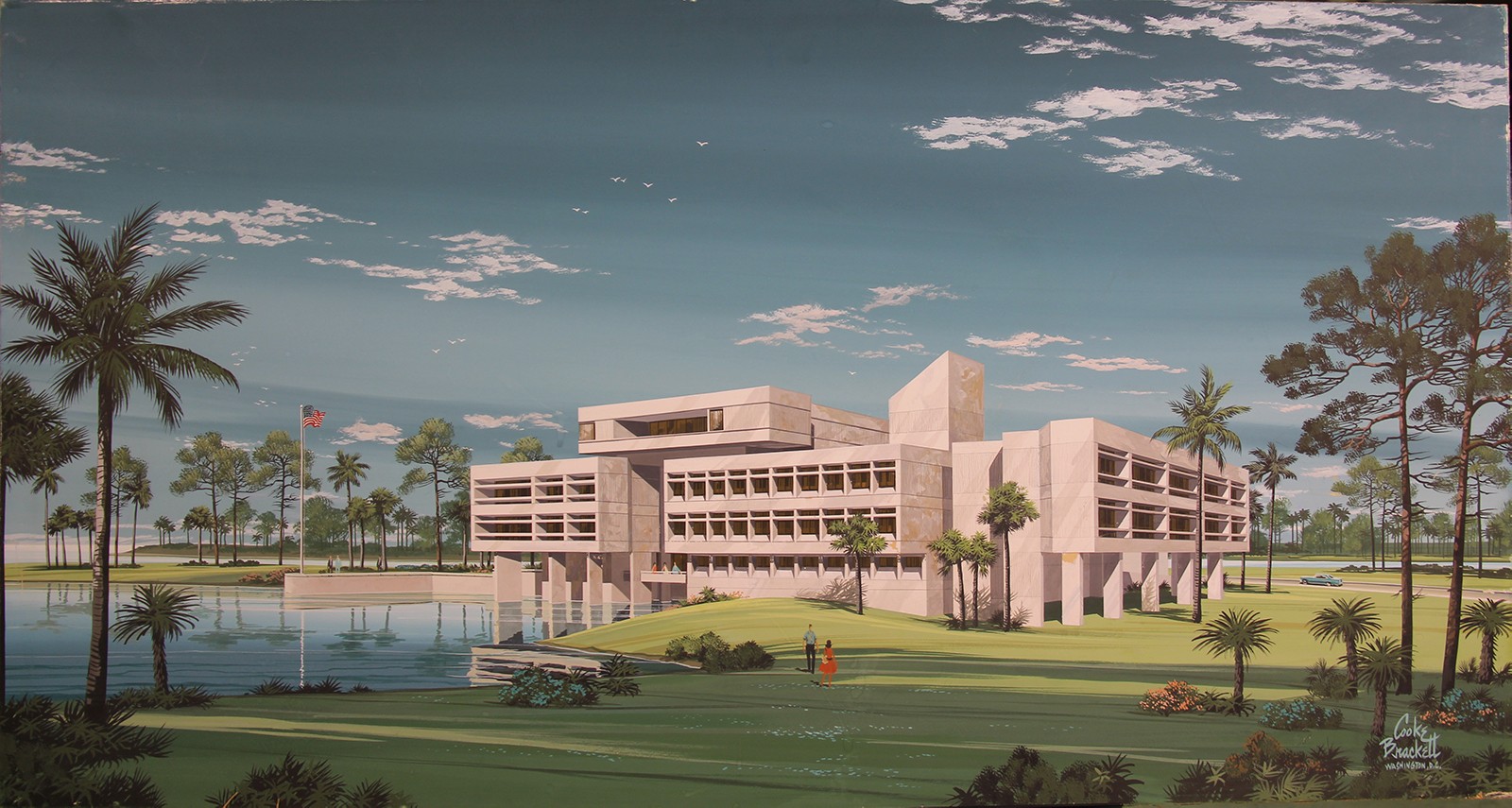At NOAA’s Atlantic Oceanographic and Meteorological Laboratory (AOML), we are extremely lucky to have many amazing women at the forefront of our science. For Women’s Equality Day, we spoke with some of our lab’s female leaders to learn more about their experiences and challenges, and to hear their valuable advice.
Molly Baringer, Ph.D.
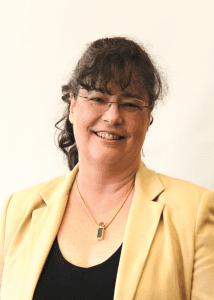
Molly Baringer serves as the Deputy Director of AOML, NOAA Research’s Atlantic Lab. Her role is to champion research performed by a fantastic group of scientists to improve hurricane forecasts, save coral reefs, advance our understanding of ocean ecosystems and climate change, and provide the foundational observations that underpin everything NOAA does to inform and protect the public. If she could, Molly would spend all her time in, on, or by the ocean. Otherwise, you’ll find her working on giant jigsaw puzzles or watching movies.
Q: What was your professional journey like leading up to your current position?
A: I started my journey as a college student who found challenging math problems interesting, and then pursued a doctoral degree on how the ocean circulates. I slowly took on more management responsibilities, first as a principal investigator, then as a chief scientist at sea, then to managing people. I’ve written papers, proposals, and budgets, but the most challenging thing I’ve done to date is understanding people and figuring out how to get them what they need to succeed and become the best version of themselves.
Q: What advice would you offer for women aspiring to obtain a leadership role in the future?
A: Work your network. If you don’t have one, get one. If you have one, expand it. You never know where opportunities can come from. Make sure you are doing what you love.
Q: What is some of the best advice you have received?
A: It’s okay to be uncomfortable since that probably means you are learning. Make sure you surround yourself with positive, motivated people. If someone isn’t bringing a positive energy, try to disengage. Pick your battles.
Dalynne Julmiste
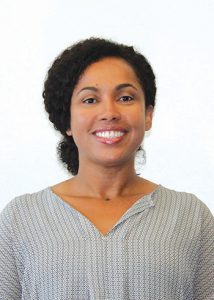
Dalynne Julmiste serves as AOML’s Administrative Officer. In this role, Dalynne manages a variety of essential management and operations services at the laboratory. She serves as part of the Executive Leadership Team (ELT), responsible for the development and implementation of policies and guidelines that impact the mission of AOML. In her free time, Dalynne submerges herself in nature and is especially fond of RV camping!
Q: What was your professional journey like leading up to your current position?
A: I joined the Navy after high school and served for 8 years. I worked in the private sector for 4 years before joining the federal government. I started with the Department of Veterans Affairs for 3 years as a Staff Assistant, and transitioned to the Department of Agriculture as an Administrative Officer at a research laboratory. I joined AOML in 2014 as the Administrative Officer.
Q: What advice would you offer for women aspiring to obtain a leadership role in the future?
A: Be unapologetic about what you bring to the table. You deserve to be there as much as anyone else.
Q: What is some of the best advice you have received?
A: Keep sharpening the proverbial knowledge sword.
Shirley Murrillo
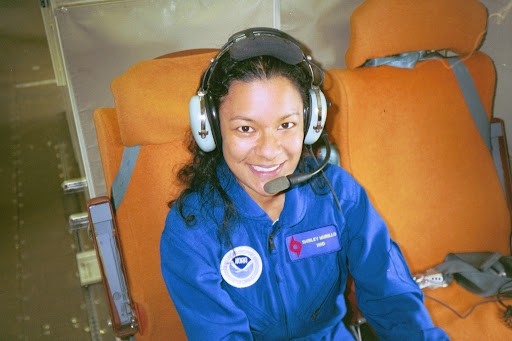
Shirley Murillo serves as the Hurricane Research Division’s Deputy Director at AOML, overseeing the research conducted in the division. She is also responsible for the daily operations of the division’s strategic vision, direction, and budget initiatives. In her free time, Shirley enjoys gardening, getting better at it during the pandemic when she spent time outdoors planting and seeing what would grow. “It’s great to go to my backyard and add items from the garden to my meals!
Q: What was your professional journey like leading up to your current position?
A: My educational background is in meteorology, and I started out conducting research on the surface wind field of tropical cyclones. I then had the opportunity to liaison with the National Hurricane Center as part of the Joint Hurricane Testbed. I got to see first hand how research is transitioned into operations. I was involved in overseeing various projects, tests, and transitions. This gave me a good perspective on managing science outcomes. I also served as the Hurricane Field Program Director for two years, where I led and managed the planning and execution of tropical cyclone flights. I participated in a few leadership programs, most notable OAR’s Leadership Effectiveness and Advancement Program. I met amazing people that helped shape my view of NOAA. I learned leadership and teamwork skills that propelled me to pursue positions in this area. I managed HRD’s Observing System Simulation Experiments (OSSE) team prior to taking the position of Deputy Director.
Q: What advice would you offer for women aspiring to obtain a leadership role in the future?
A: Ask questions, talk to other women in leadership positions about their experiences. If there isn’t a seat at the table, make one. Even in the virtual work environment, make sure you are present at meetings. Be present, participate, and ready to ask questions. Have someone you can bounce ideas off or work with if you have to have difficult conversations or tackle difficult situations.
Q: What is some of the best advice you have received?
A: Treat everyone with respect regardless of their title. There is no comfort in the learning zone and there is no learning in the comfort zone. When one door closes another one will open. Listen and listen with intent. There is no innovation or creativity without failure.
Jasmin John
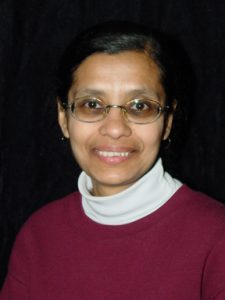
Jasmin John serves as the Ocean Chemistry and Ecosystems Division’s Deputy Director at AOML. Jasmin’s role involves wearing several different hats, all of which are rooted in service and giving back. Her tasks include being a climate modeler, colleague, mentor, coach, friend, and leader. Regardless of the role, Jasmin likes to share her knowledge and experience to help others to learn and grow. In her free time, Jasmin and her family love exploring new cultures and cuisine through travel.
Q: What was your professional journey like leading up to your current position?
A: My journey has been somewhat non-traditional for a scientist. I grew up in Trinidad and Tobago where I was fascinated by the night skies and dreamed of exploring the stars. I enjoyed learning new things – especially math, physics and science – and was the first in my family to go to college. Although I was too short to be an astronaut, with my science background I ended up on a different path and became a self-taught climate modeler. I’ve been fortunate to work with colleagues from around the world and collaborate on developing different US climate models, including NOAA’s Earth System Models. I’ve now transitioned to a formal supervisory role as the Deputy Division director of AOML’s Ocean Chemistry and Ecosystems Division – it takes some by surprise that I don’t have a PhD and that I have managed to get to this role. My hope is that being in this position will help inspire others like me (women, underrepresented minorities, non-PhDs, introverts) to see themselves in these roles and convey a sense of belonging within NOAA.
Q: What advice would you offer for women aspiring to obtain a leadership role in the future?
A: Practice servant leadership, be an authentic leader, and lead with empathy and humility. Think about how you want to be remembered as a person and as a leader – what will your legacy be? For me, I would like to make a difference in whatever I undertake, so I try to change what I can in my sphere of influence to build and leave behind a better place. I also think it’s important to know your values and live up to them – practice self-reflection and walk the talk. Listen, learn, build trust, and value differences to see the leaders all around you and shine a light on them.
Q: What is some of the best advice you have received?
A: I didn’t have many mentors to offer advice, so I’ll offer some things I’ve learned or heard. Step outside your comfort zone, challenge yourself and take risks – that’s when you grow even if you make mistakes or fail. Be courageous and resilient in the face of adversity. Follow your passion and dreams but be adaptable to pivot and take on something new and different. Last, but not least, look for ways to achieve life-work balance (life comes first) – it’s okay to say no and not take on everything.
Renellys Perez, Ph.D.
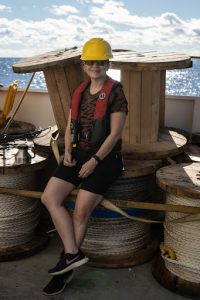
Renellys Perez serves as the Physical Oceanography Division’s Deputy Director at AOML. She is also the lead/co-lead investigator for several of NOAA/AOML’s established ocean observing programs in the Atlantic Ocean. She is a mentor for early career professionals and has served as a Chief Scientist on numerous research cruises. Renellys loves to make science and math puns, and come up with witty acronyms for research programs (e.g. Tropical Atlantic Current Observations Study (TACOS)).
Q: What was your professional journey like leading up to your current position?
A: I was born in Miami, FL and grew up here. I started off in pure physics and applied math for undergraduate and then specialized in marine physics and oceanography in graduate school. I got my B.S. and M.S. degrees from the University of Miami and then moved to the west coast. I received my Ph.D. from Oregon State University in 2006. I then did a National Research Postdoctoral fellowship at NOAA’s Pacific Marine Environmental Laboratory in Seattle. I moved back to Miami in 2008. I started working at AOML through the Cooperative Institute of Marine and Atmospheric Studies (CIMAS) at the University of Miami. I was so excited to work with CIMAS and AOML scientists, and move closer to my family. I became a NOAA Oceanographer in 2017, and became the Deputy Director for the Physical Oceanography Division in August 2022.
Q: What advice would you offer for women aspiring to obtain a leadership role in the future?
A: I heard a NOAA leader talking about “leading from the middle,” and that resonated with me. We don’t always have to have a fancy title to demonstrate leadership. You can seek opportunities to develop new skills inside and outside the organization that you work in. If you do a good job, people will notice and more opportunities will come your way. You can’t say yes to every opportunity, so be selective. Don’t stop yourself from applying for a job because you don’t meet 100% of the job requirements. The worst they can say is no. You will never know what opportunities might arise just because you applied.
